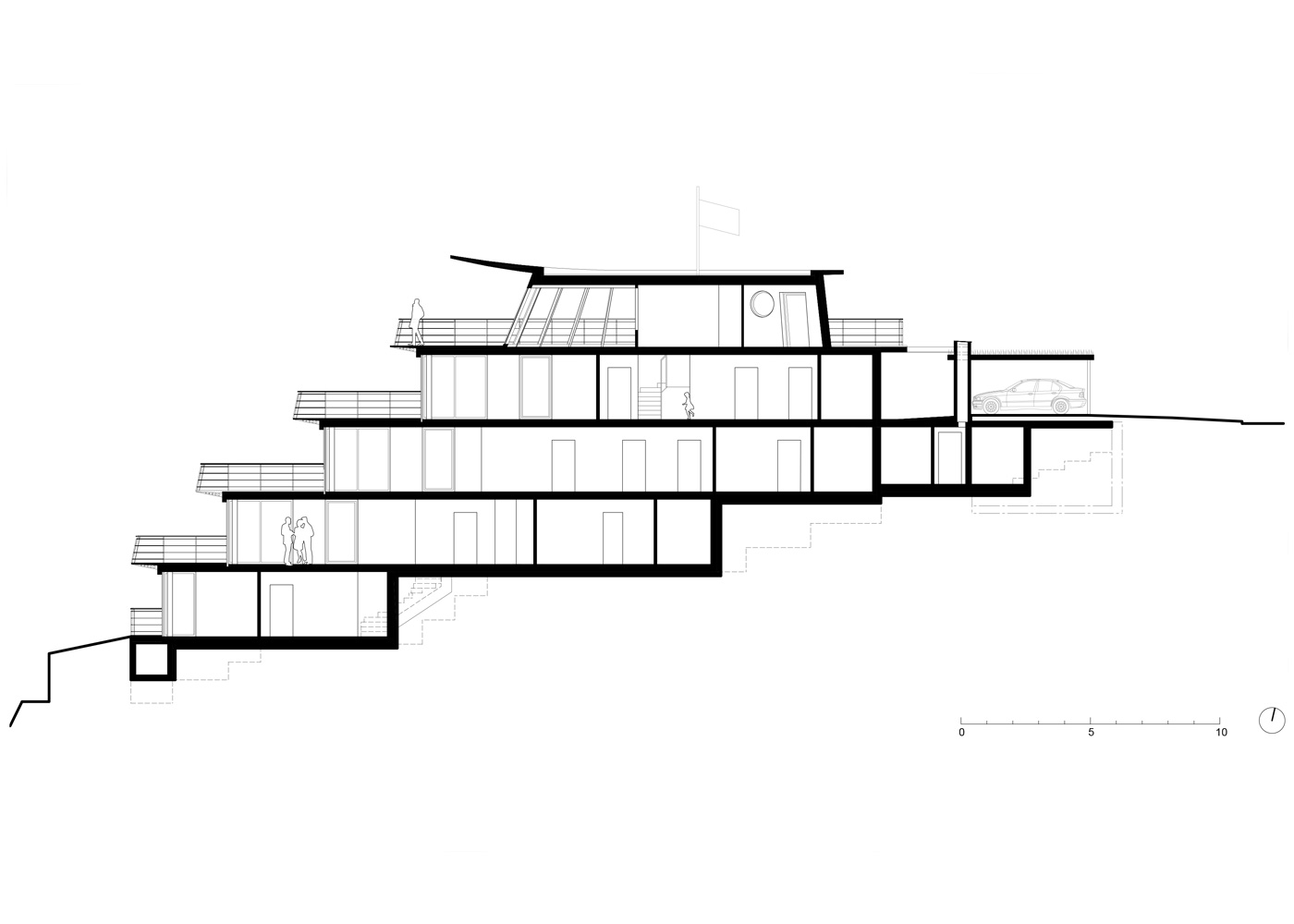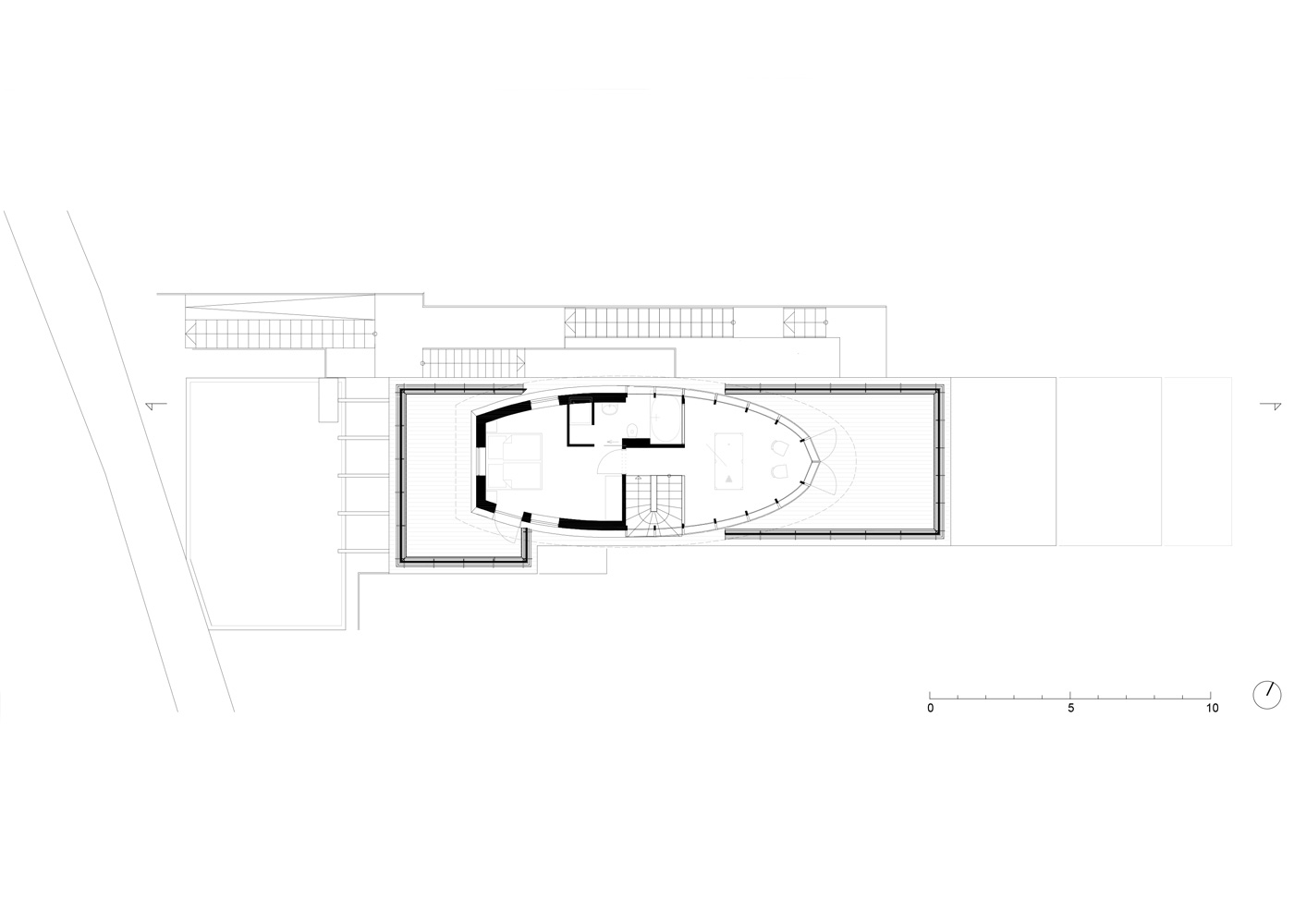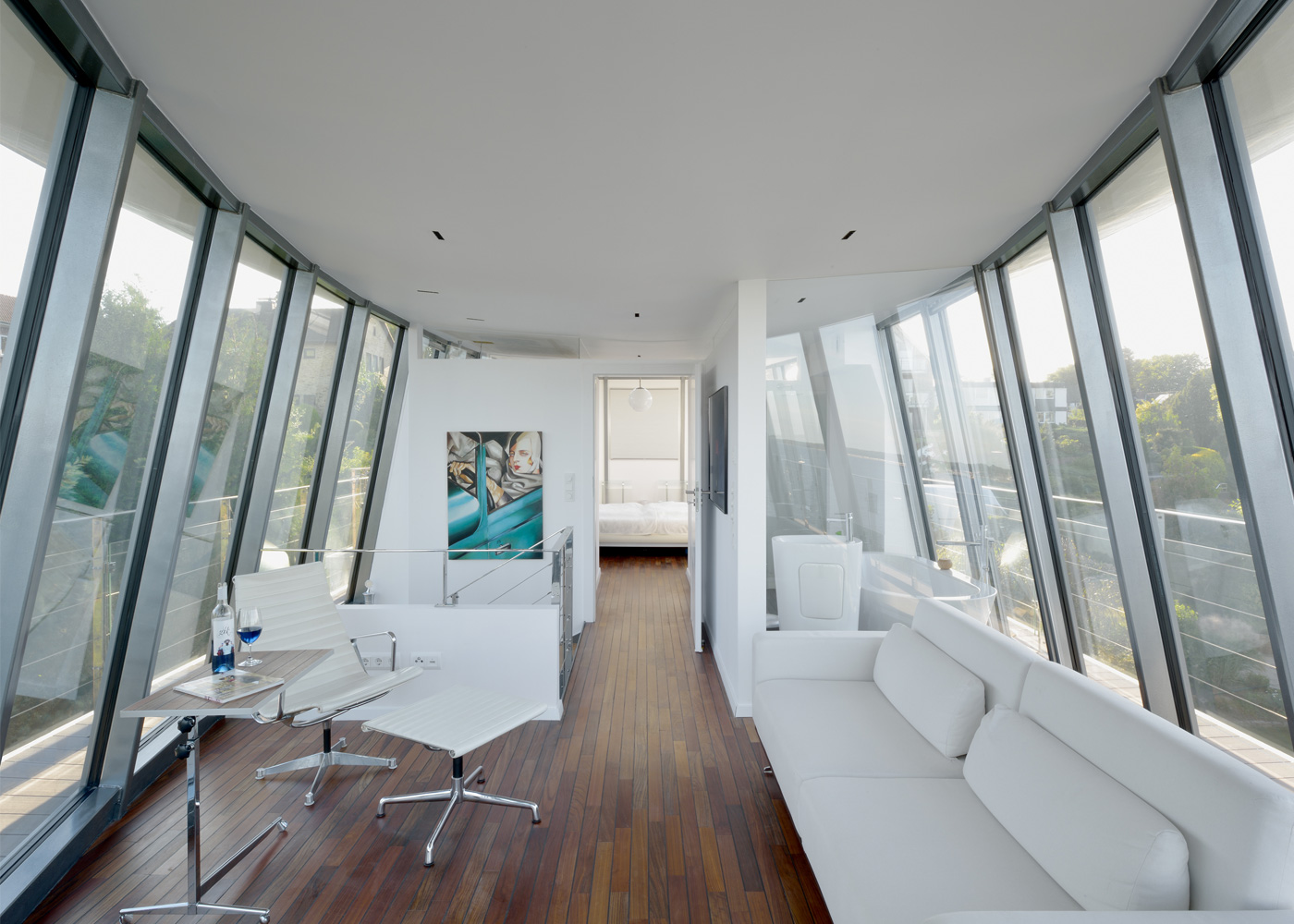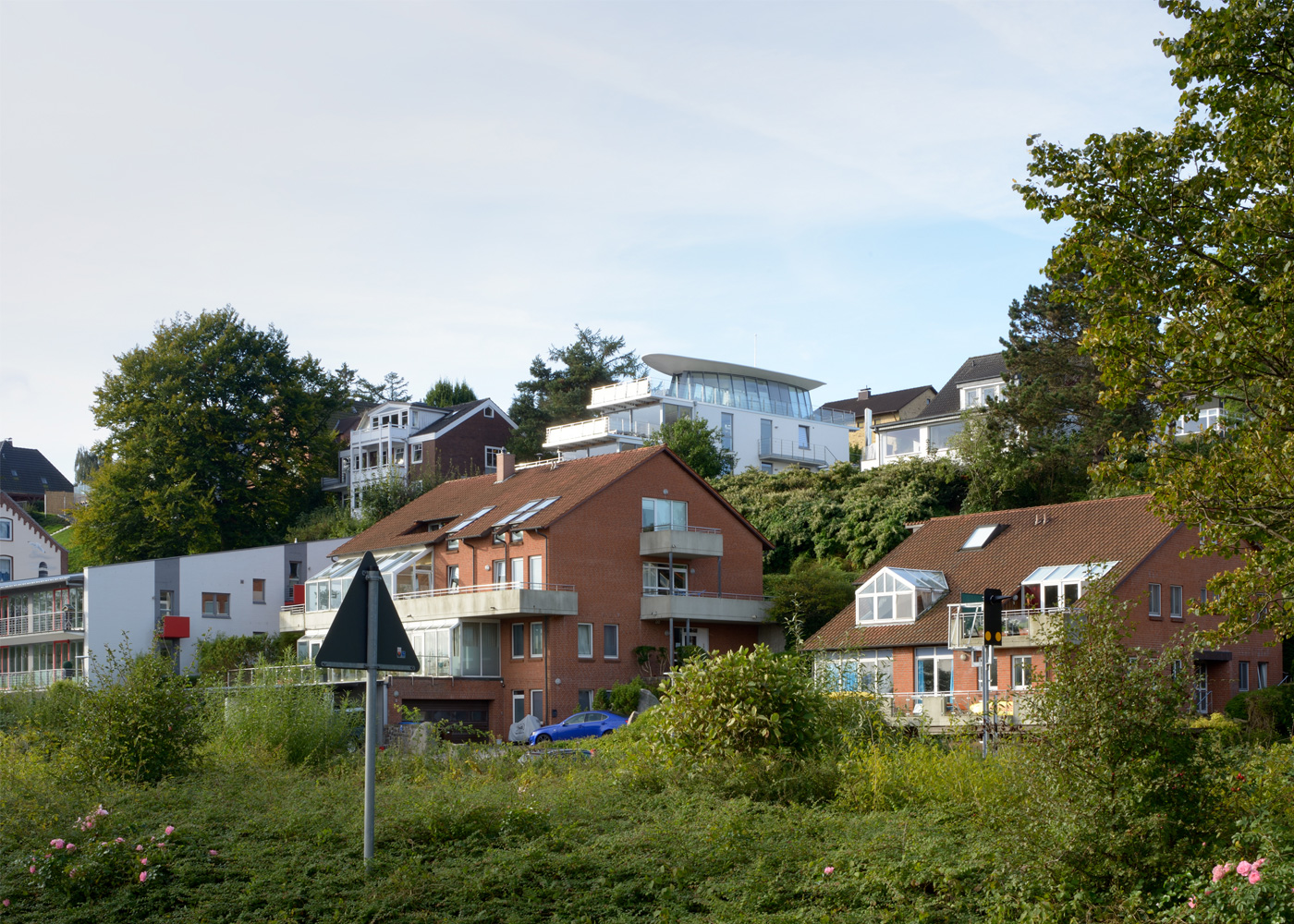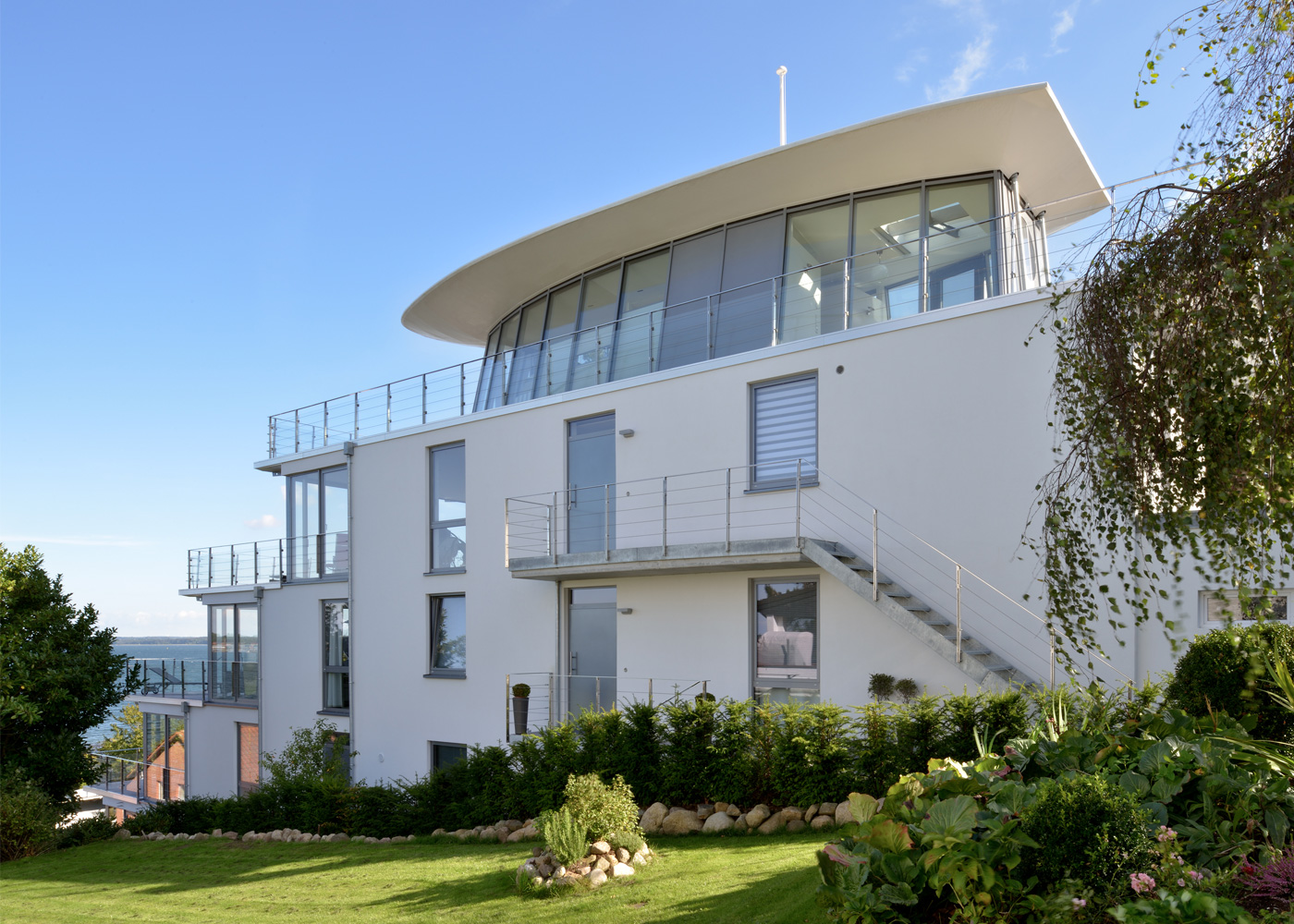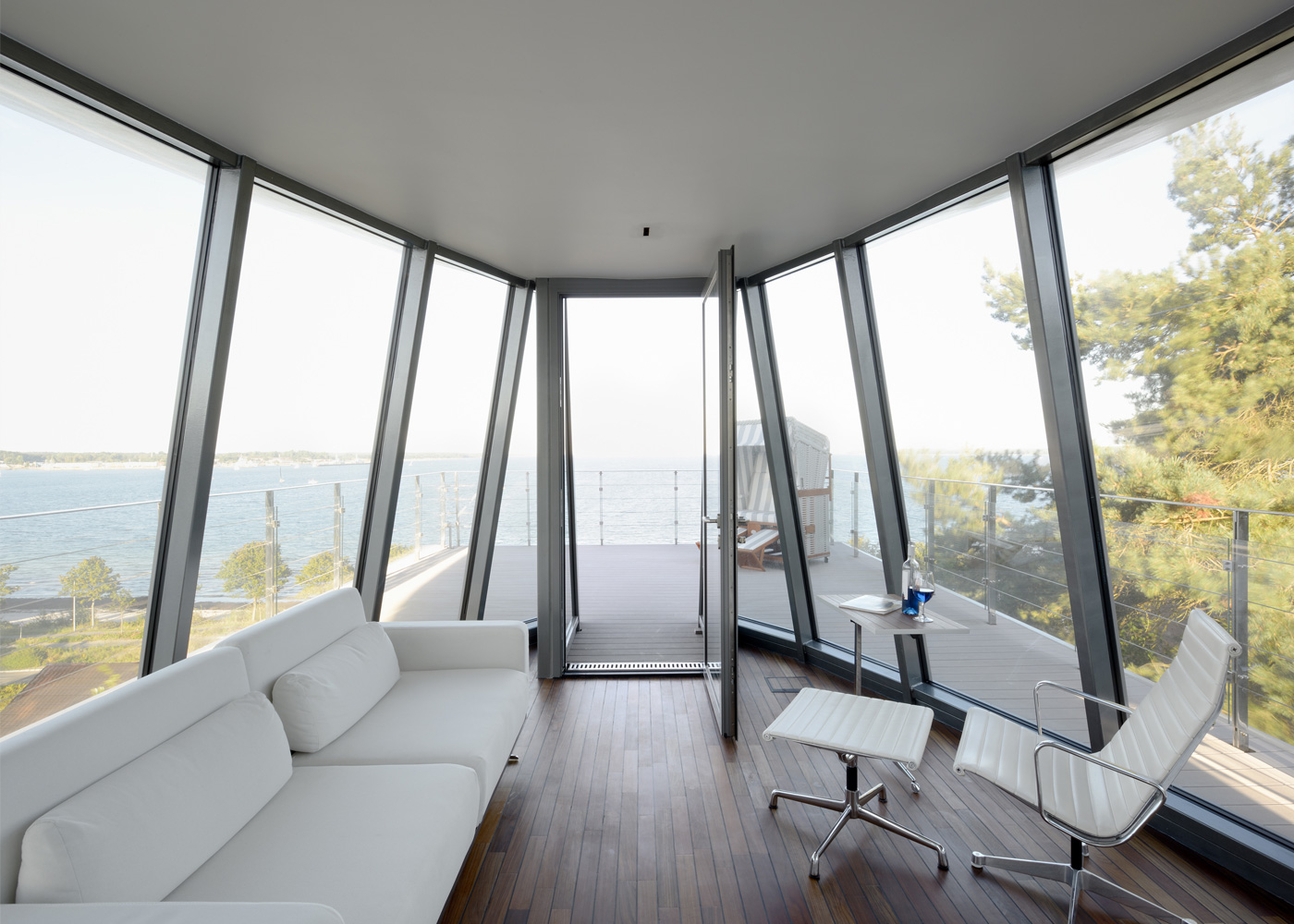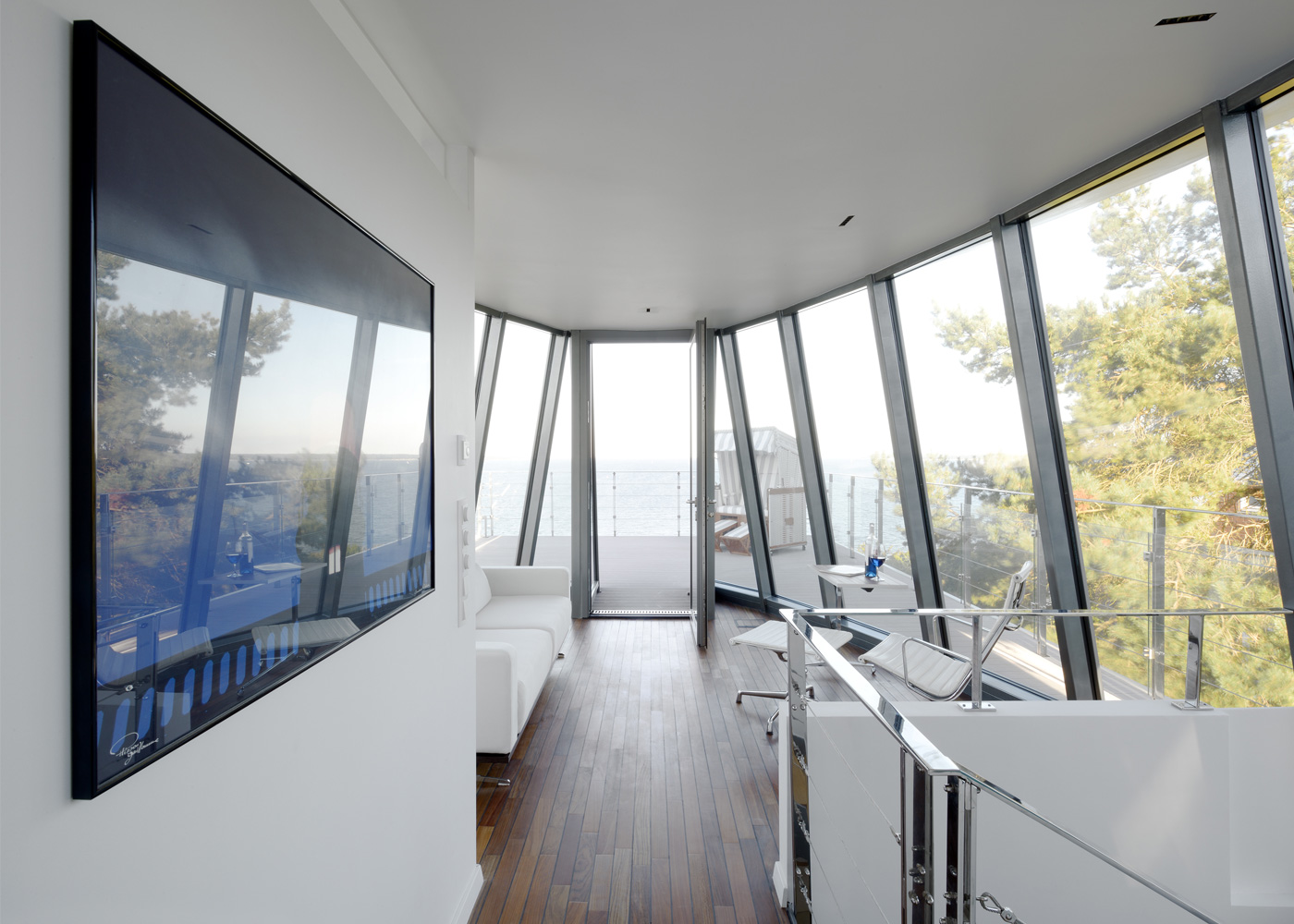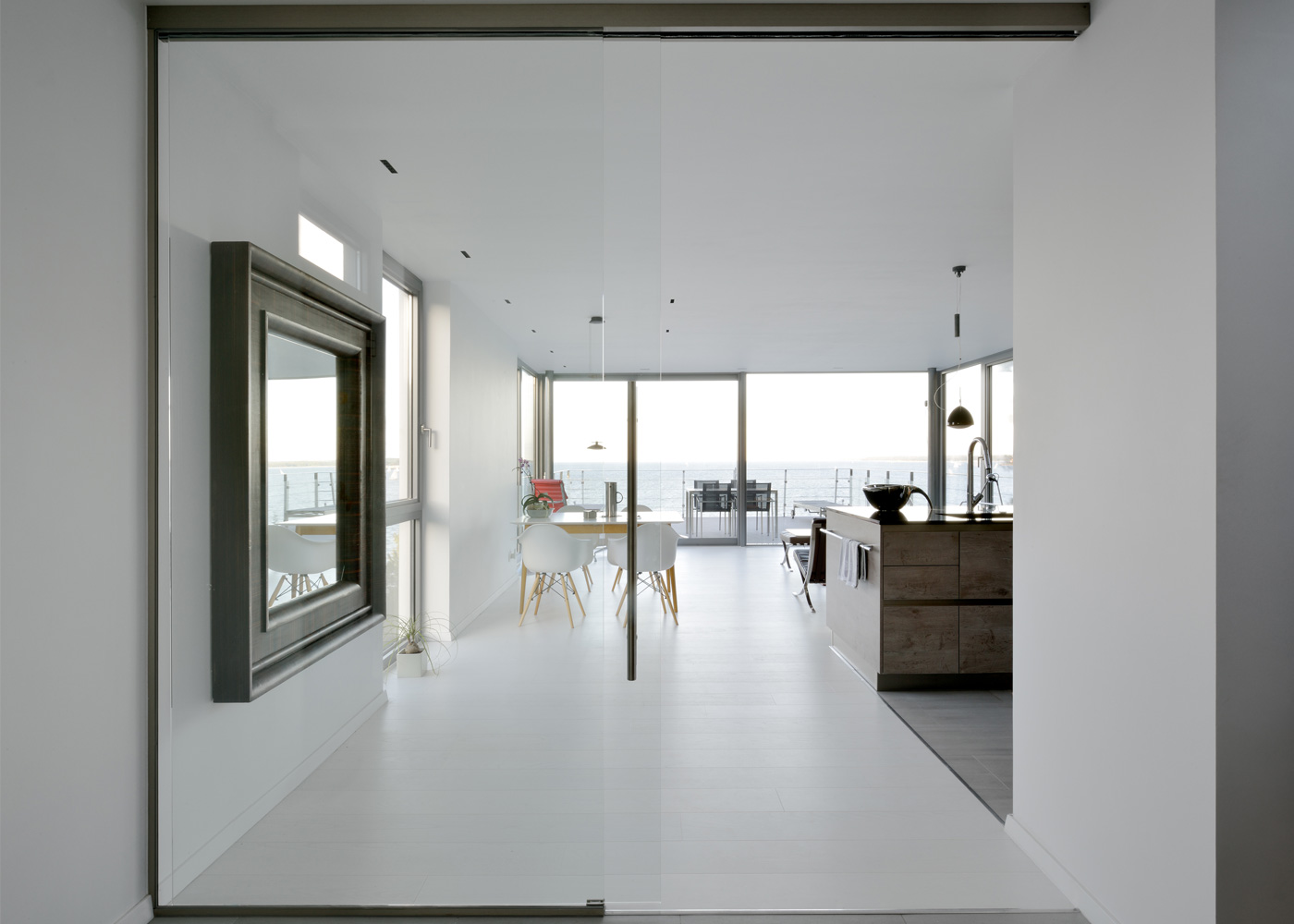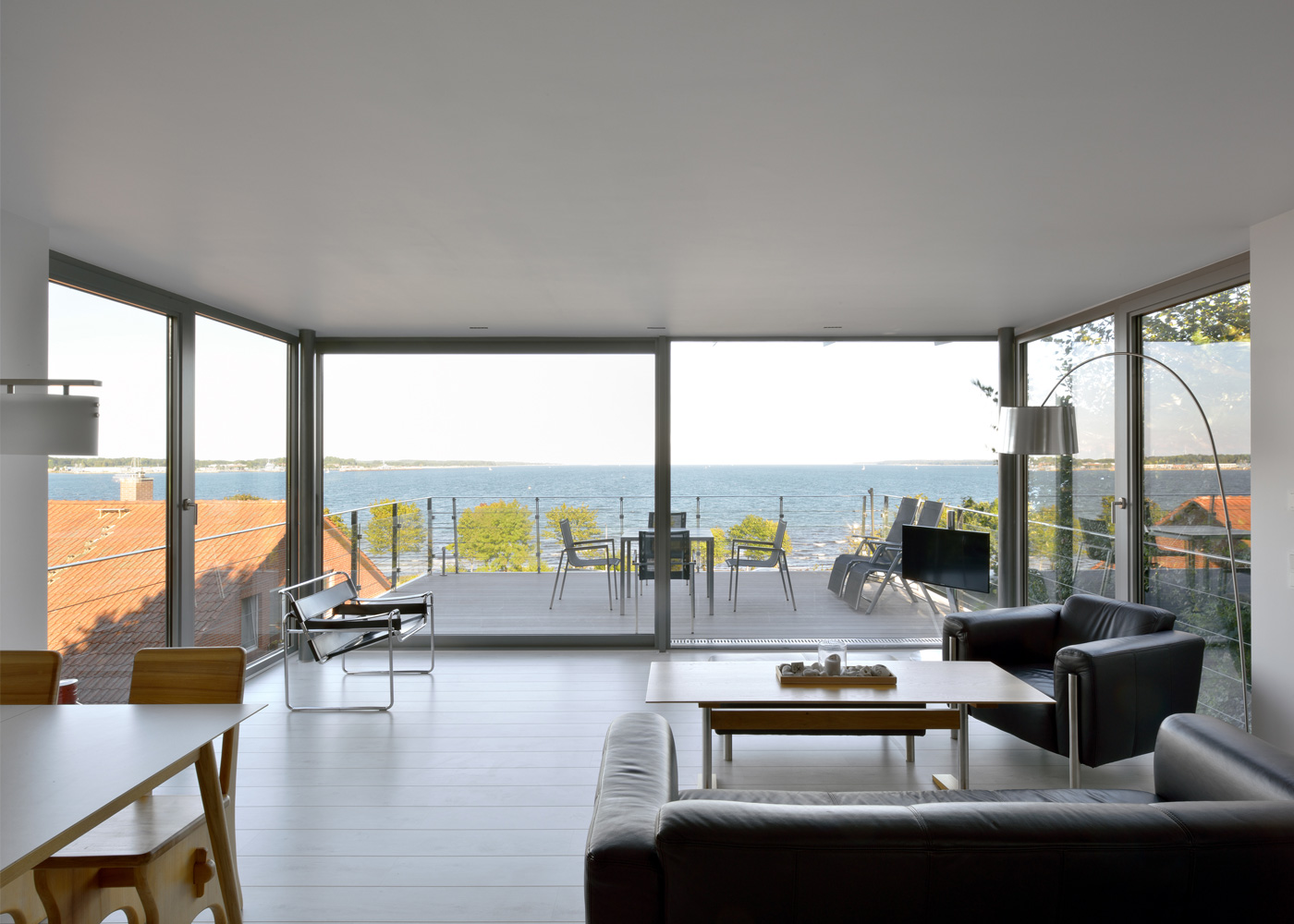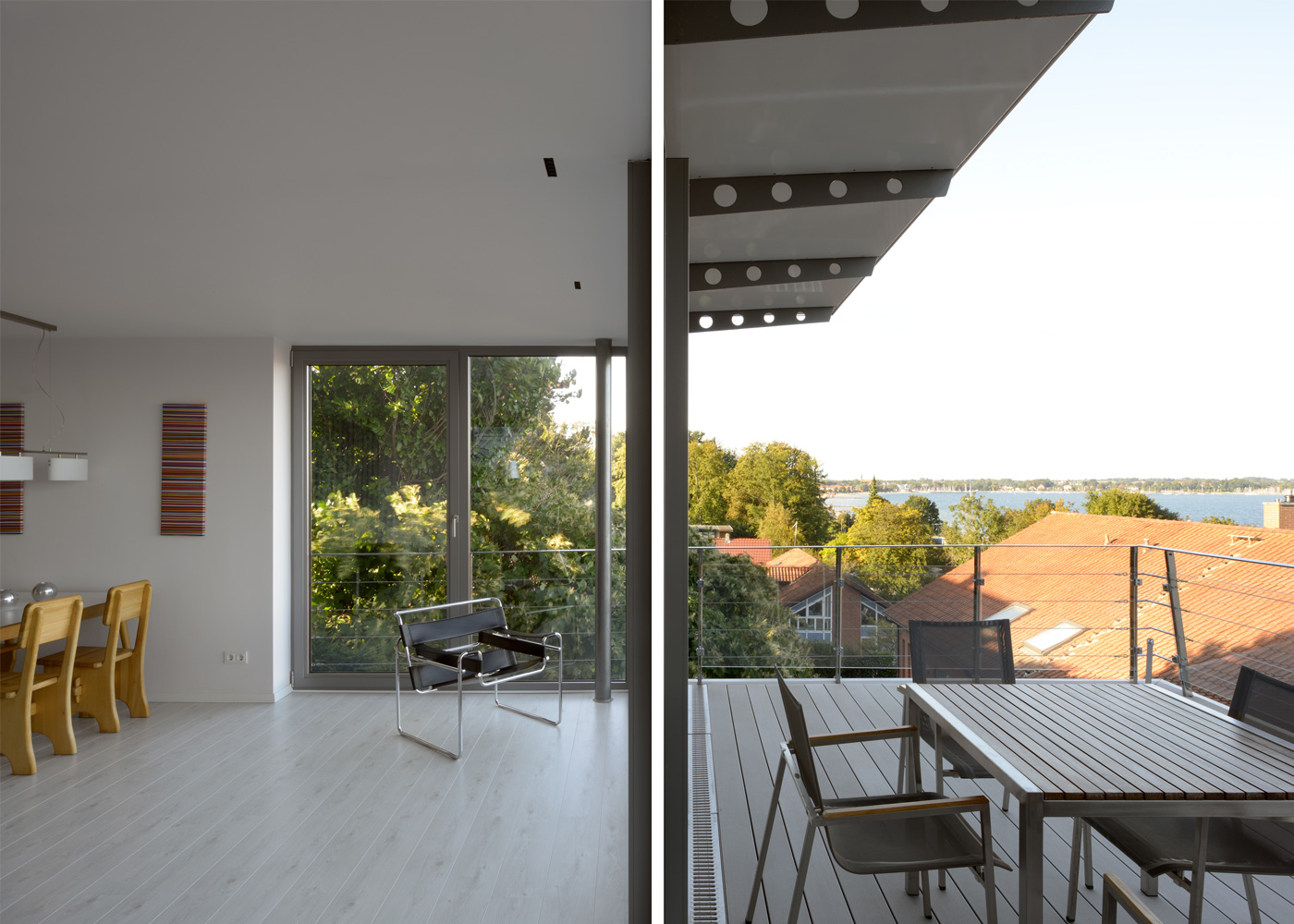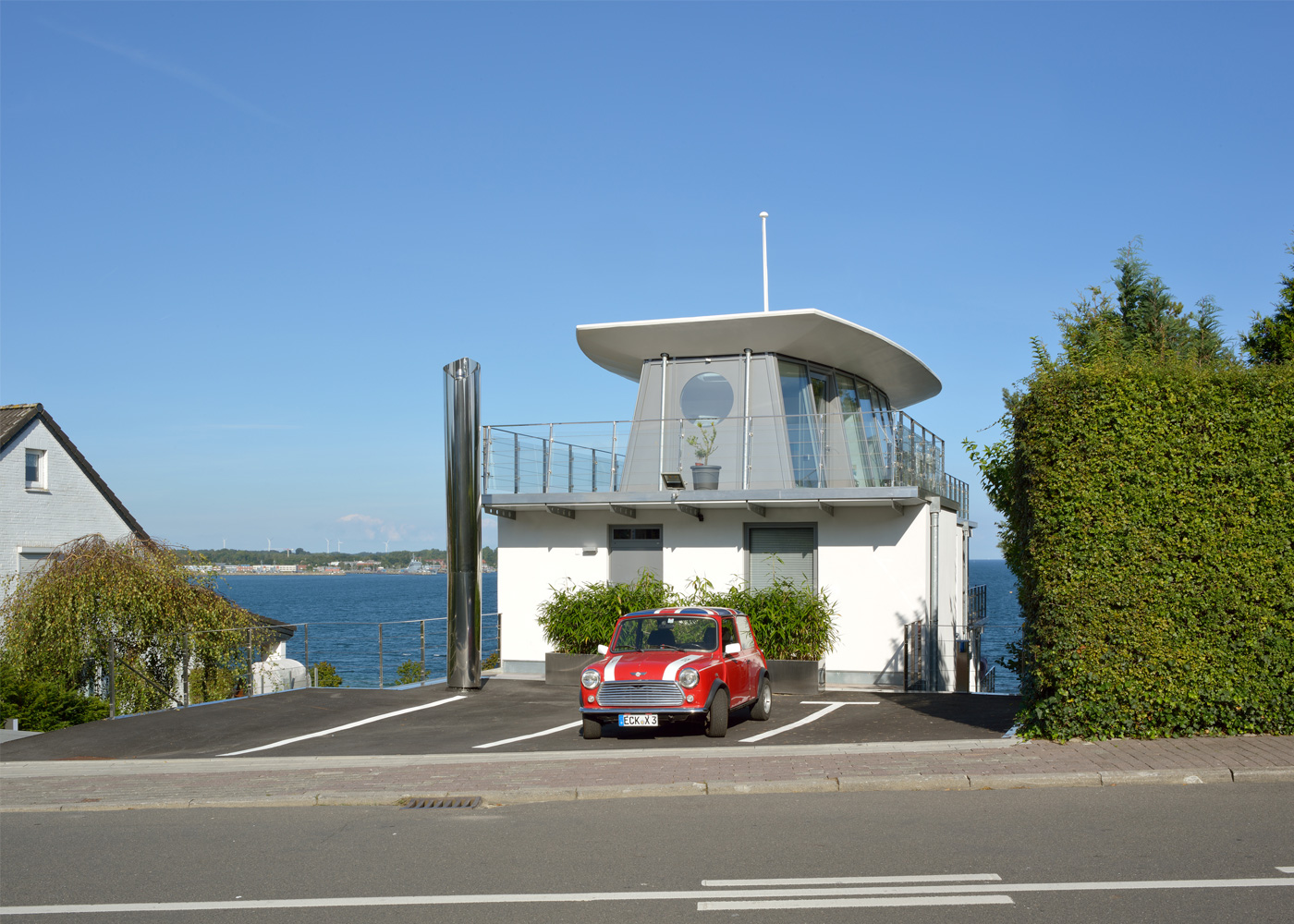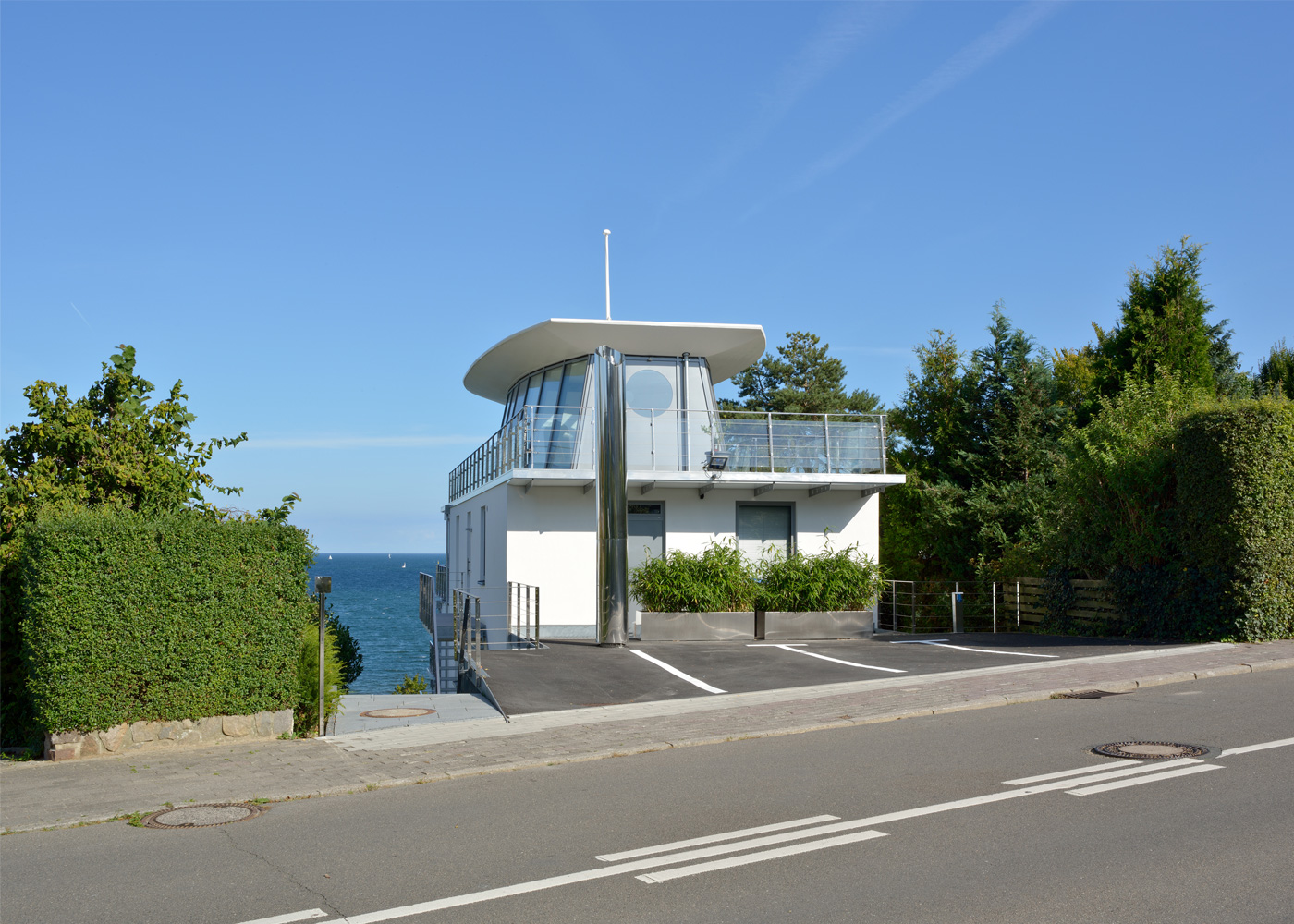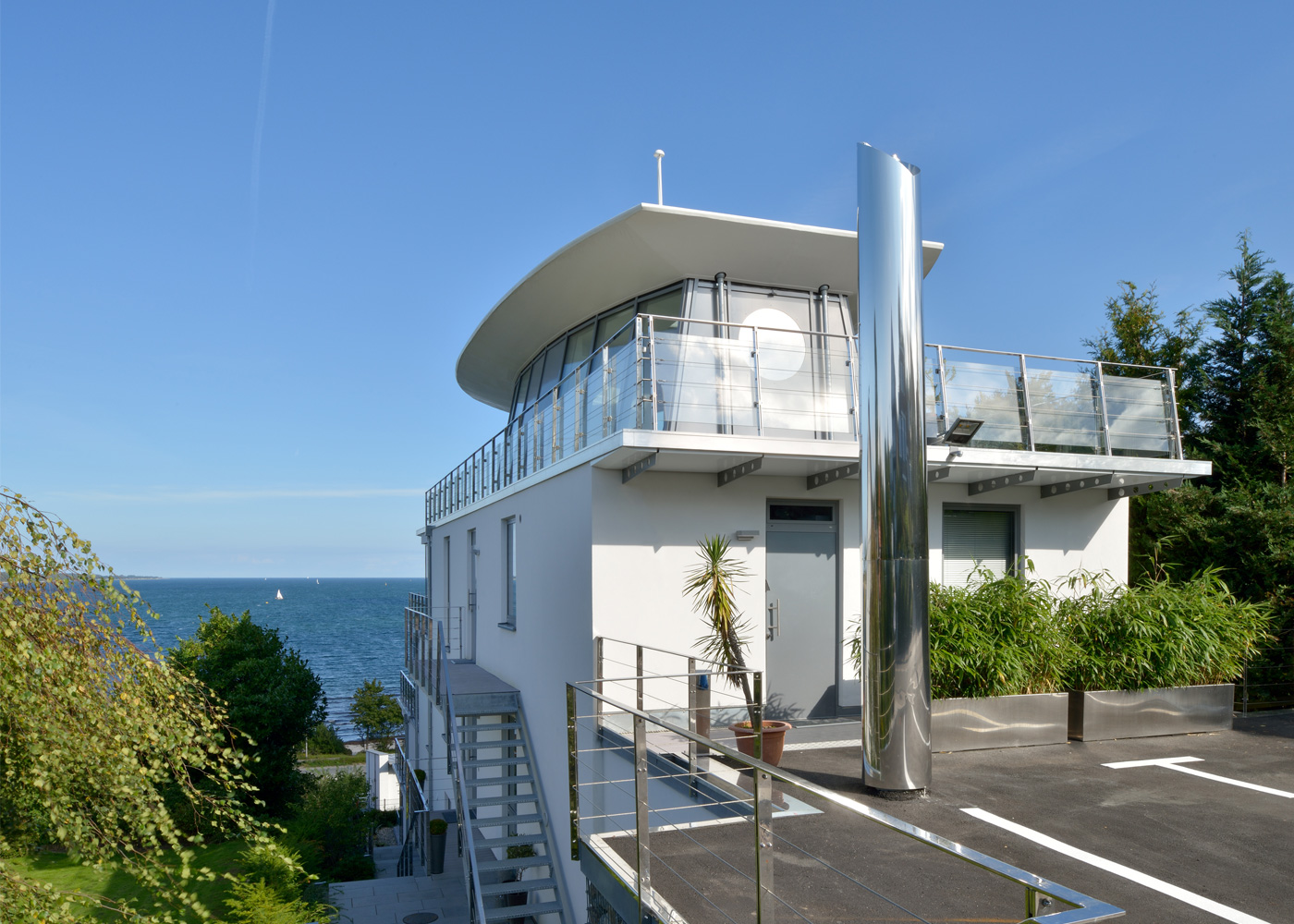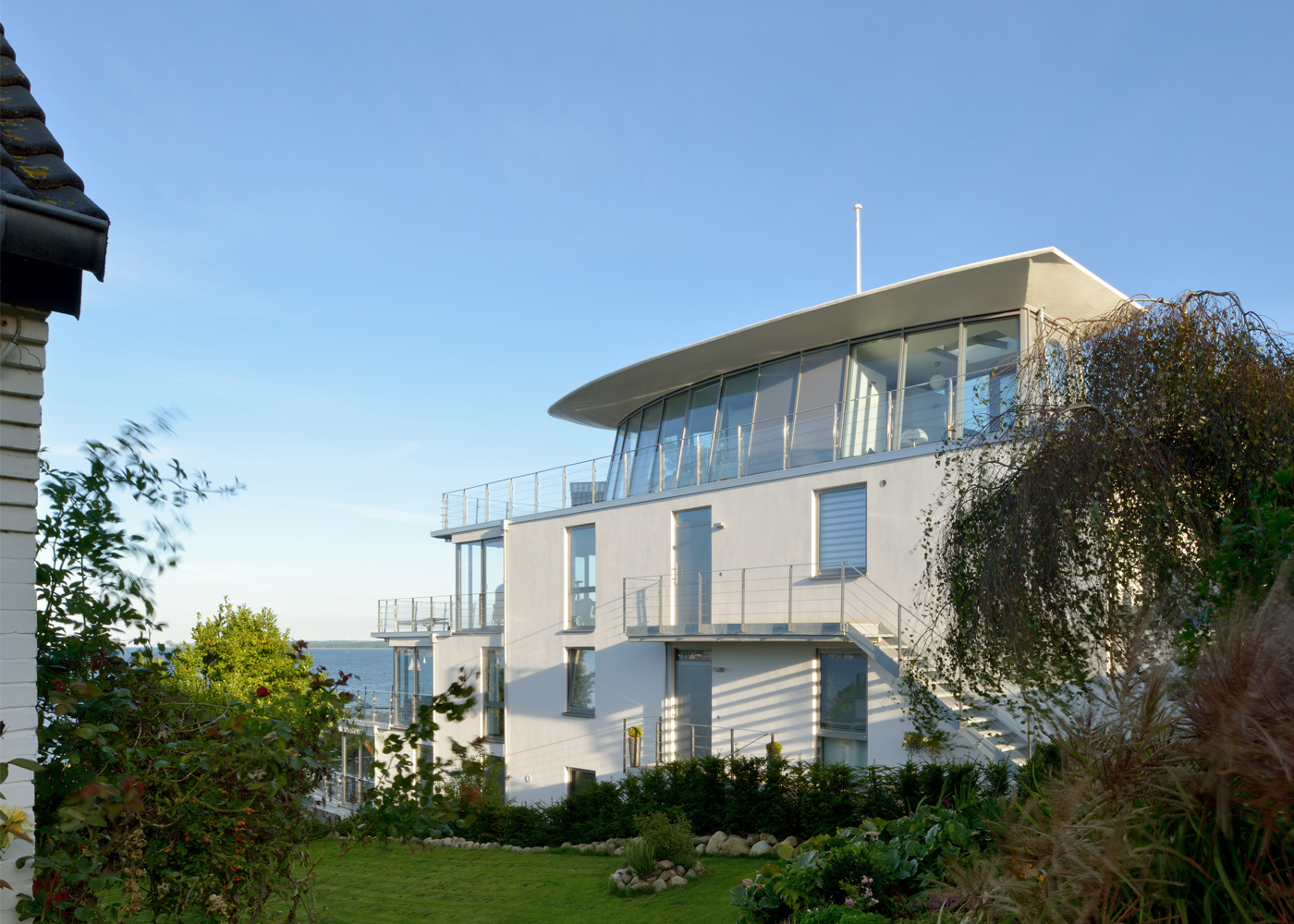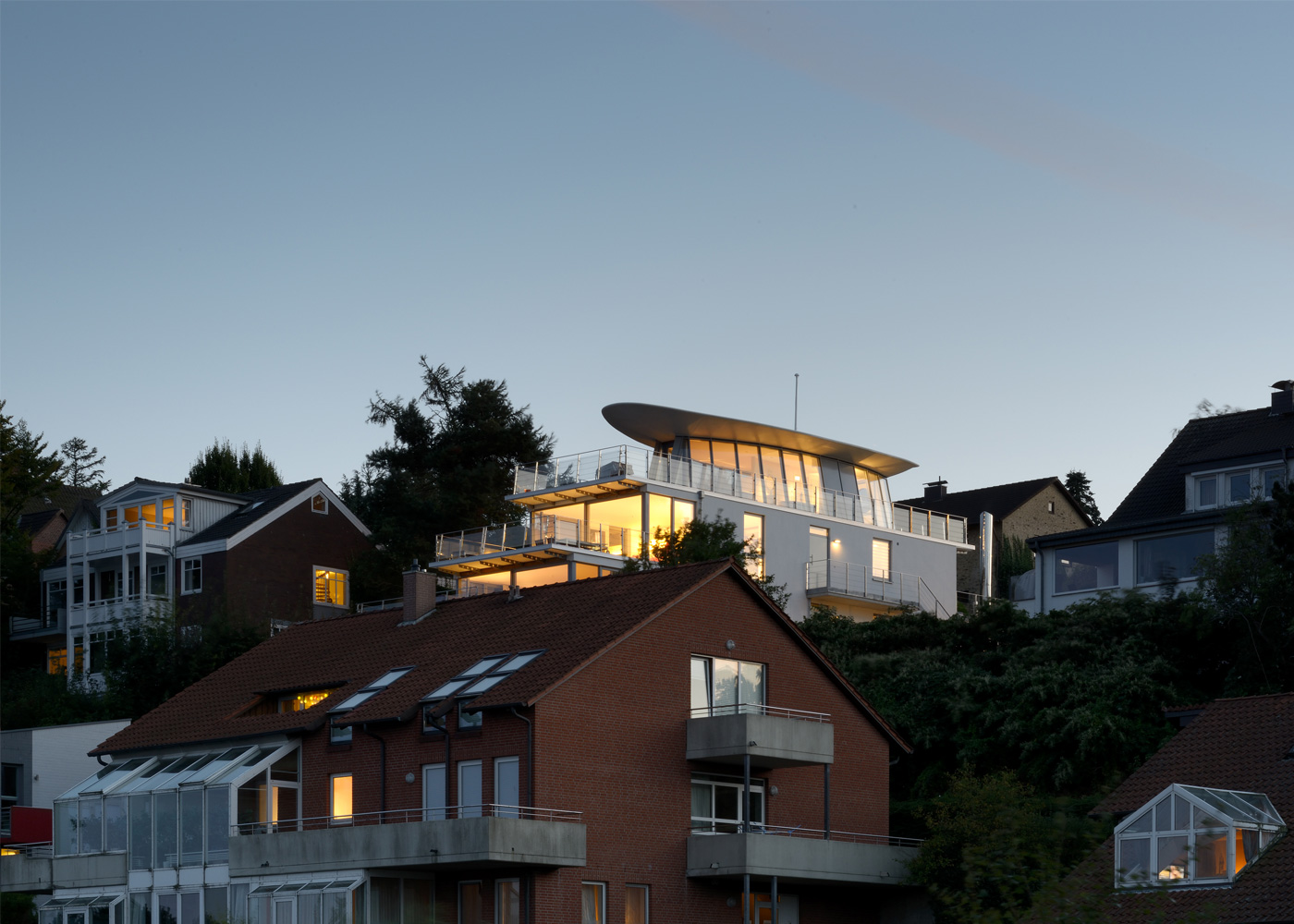Baltic Sea Terraces, Eckernförde
Situated on a steep, westerly slope, approximately 20m above sea level, below one of Eckernförde’s most popular residential streets, this residence enjoys one of the most stunning views over the bay and the open Baltic Sea.
The site, 12m in width, 50m in length with an 9m elevation, required access from the upper end. This demanded a special design concept. The unique east view and the desire for sunshine throughout the day, were only a few of the priorities to be considered.
The site, 12m in width, 50m in length with an 9m elevation, required access from the upper end. This demanded a special design concept. The unique east view and the desire for sunshine throughout the day, were only a few of the priorities to be considered.
Project data
Place: Sehestedter Str. 61, 24340 EckernfördeBuilder: k.A.
Planning: 2014 – 2015
Construction time: 2015 – 2016
Costs: k.A.
Living Space: 410 m²
Net Area: 527 m²
Photograph: Hagen Stier
Awards: Iconic Awards 2019: Innovative Architecture – Winner, German Design Award 2020 – Winner Excellent Architecture
Maritime Design with large open Terraces
Obviously, a building had to be planned on a slope, with terraces stretching towards the east. Adequate privacy was of the essence, so each terrace, constructed with an awning, prevented a view over other terraces. The span of the ceilings over the total width of the house enabled an individual design concept for the interior.
The easterly, as well as the adjacent façades were completely glazed, providing a smooth transition between the interior and exterior. The “navigation bridge”, situated on the highest point of the building, with a 3-dimensionally curved roof, completed the “maritime” feeling of the design, further emphasized by the terrace railings.
The easterly, as well as the adjacent façades were completely glazed, providing a smooth transition between the interior and exterior. The “navigation bridge”, situated on the highest point of the building, with a 3-dimensionally curved roof, completed the “maritime” feeling of the design, further emphasized by the terrace railings.
Innovative construction and custom made production
In order to carry out such ambitious building design, innovation was of the essence. Free movement between the terraces was possible through vacuum insulation. A special sky light construction, developed for the zenith lighting, was integrated into the terrace planks. A curved roof and the outer façade below had to be pre-constructed in two parts and bound together in the space of one day. This was perhaps the greatest challenge during the project.
The overall roof, designed like a ship’s hull using a special architecture cad programme, was constructed in sections on CNC coordinated machines, assembled together and GRP laminated.
The overall roof, designed like a ship’s hull using a special architecture cad programme, was constructed in sections on CNC coordinated machines, assembled together and GRP laminated.
